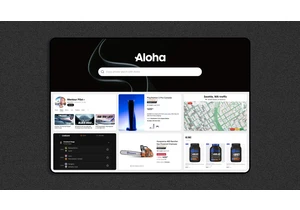Pinterest, the virtual pinboard that has 431 million active users worldwide, is doing its part to take on the climate crisis: On Wednesday, the company announced it would ban any content that makes false claims around climate change.
The new climate misinformation policy sprang up due in part to a growing interest among users in sustainability-themed content. “We know that Pinners are coming to Pinterest to find ideas to incorporate sustainability into their lives, ” says Sarah Bromma, head of policy at Pinterest. Searches for “zero waste tips” are six times greater than they were last year, she says, and searches for “recycled clothes” have quadrupled over the same time period. There has also been a nearly 100% increase in searches for “recycled home decor.” But with the growth in interest comes a risk of misinformation. “We also know, from engaging with climate experts, that climate misinformation can impede efforts to build a healthy planet,” says Bromma. Under the new policy, Pinterest has the right to remove any content that denies the existence of climate change; mislead, misrepresent, or contradict scientific fact; or misinform the public about natural disasters or extreme weather events. The new rules will also extends to advertisements, which are prohibited from including conspiracy theories, misinformation, and disinformation on climate change.
Among social platforms, Pinterest has been the most aggressive in challenging misinformation. As far back as 2013, Pinterest began removing posts that contained images of self harm or harmful health misinformation. In 2017 (long before the COVID-19 pandemic), Pinterest created a misinformation policy that banned anti-vaccination misinformation and false cures. One year later, the company told users that conspiracy theories would no longer be allowed. Then, in the lead up to the 2020 election, Pinterest targeted election and census misinformation. Over the years, the company has developed a framework for taking down offending content that involves finding offensive content, using machine learning, user-generated reporting, and human moderators. Pinterest engineers say that since 2019, the company’s machine learning has pulled enough violating content that the number of violations that people report directly to Pinterest has dropped by roughly half. In that same time, reports of self-harm content has gone down 80%. The company also works with experts and trusted organizations to elevate reputable content. Pinterest’s aggressive treatment of misinformation makes it something of an outlier among social media networks. Twitter, Facebook, and YouTube have historically been reticent to interfere with user-generated content on their platforms, though all three began banning or flagging some anti-vaccine misinformation during the pandemic (to varying degrees of success). Even companies with strong policies, like Pinterest, cannot guard against every piece of misinformation that comes onto its platform. Bromma is certainly clear-eyed about that reality. “This is not the end of our misinformation journey today,” she says. “We’ll have to keep engaging with experts, make sure we’re staying on top of trends, and continually evaluating our policies and enforcement approaches to make sure they’re serving our community and our mission.”
Войдите, чтобы добавить комментарий
Другие сообщения в этой группе

My worst workday habit is that I’m a compulsive web page checker.
Throughout the day, I’m constantly refreshing the same handful of sites for updates. I’ll check the me

Recent breakthroughs in generative AI have centered largely on language and imagery—from chatbots that compose sonnets and analyze text to voice models that mimic human speech and tools that tra

Cloud storage services conveniently let you store and access documents, photos, videos, and more from any device. The best part? Many top providers offer free plans that are surprisingly capable.

Sometimes, you need to shake things up in your career. Maybe the job isn’t as fulfilling anymore. Maybe changing circumstances are pushing you toward a new path. Either way, figuring out what to d

Zipline’s cofounder and CEO Keller Cliffton charts the company’s recent expansion from transporting blood for lifesaving transfusions in Rwanda to retail deliveries across eight countries—includin

When Skype debuted in 2003, it was the first time I remember feeling that an individual app—and not just the broader internet—was radically disrupting communications.
Thanks to its imple

It’s spring, and nature is pulling me away from my computer as I write this. The sun is shining, the world is warming up, and the birds are chirping away.
And that got me thinking: What
